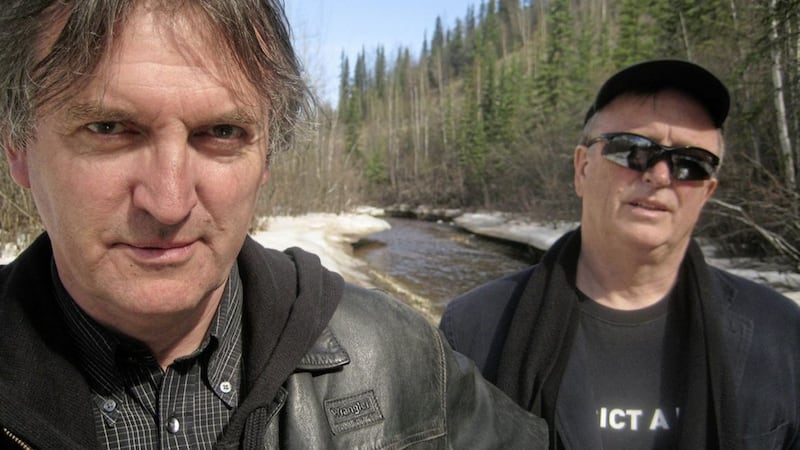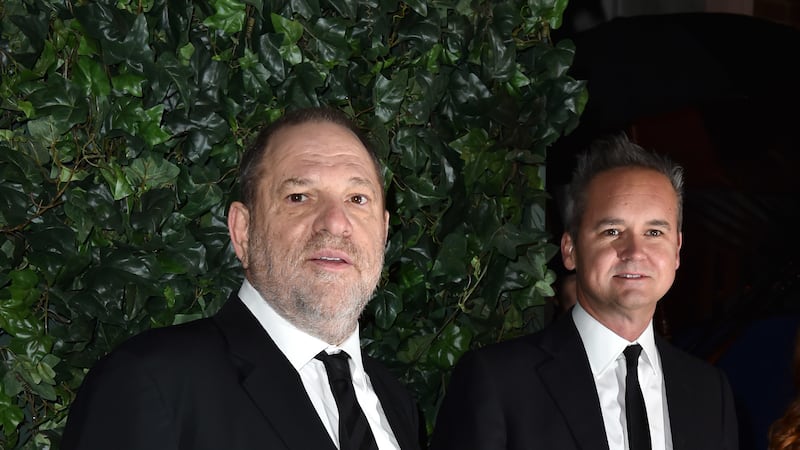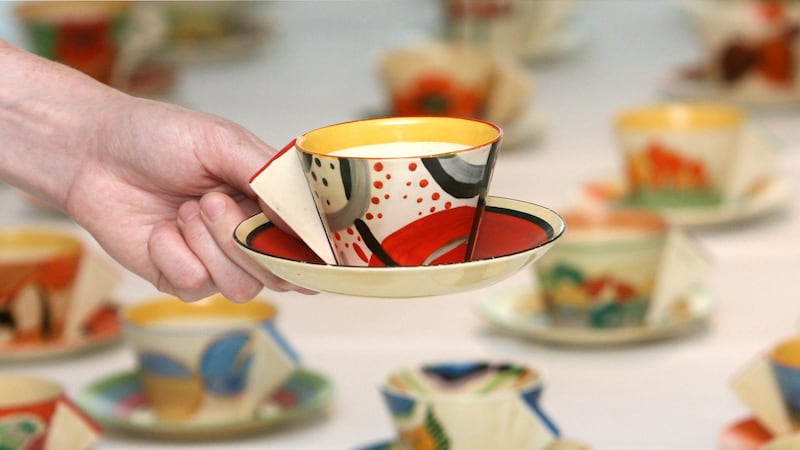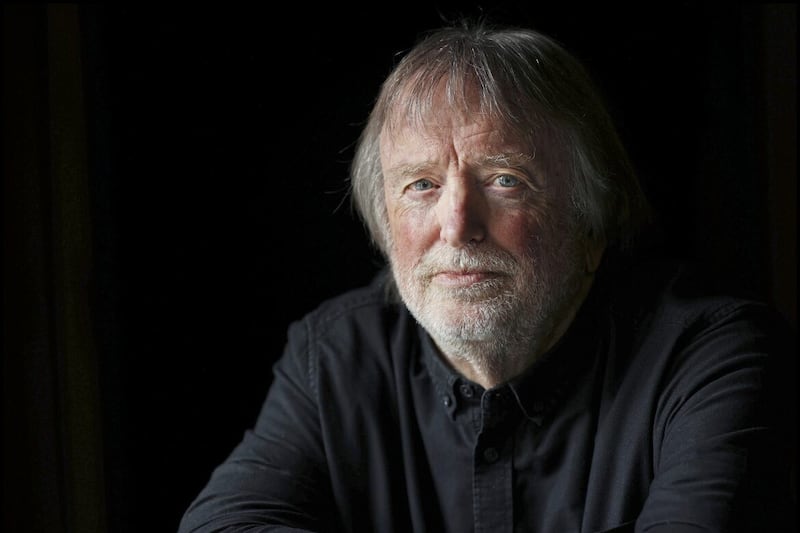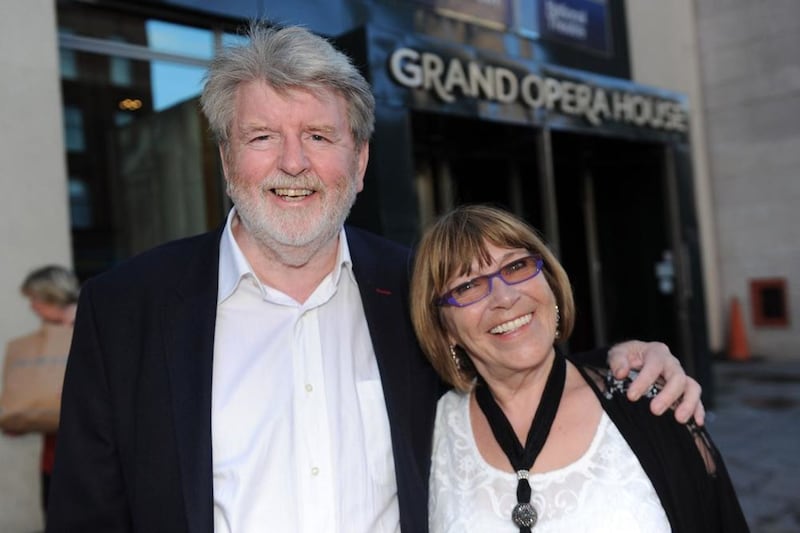IS IT still traditional music if it is played with electric guitars and drums by a rock band?
The question might be a tad philosophical and, once you hear the opening riff of Dearg Doom by Horslips, famously based on the tune Marcshlua Uí Néill – and the theme tune to the Jack Charlton soccer years – you may wonder if it really matters.
The collective members of Horslips were very skilful at taking traditional material and crafting it into something modern, new and exciting as their legions of fans will testify.
With the band unlikely to play live again, their talents haven’t been put in aspic: next month, Barry Devlin and Jim Lockhart will be at the Seamus Heaney Centre in Bellaghy to provide the music for a performance of Eibhlín Dhubh Ní Chonaill’s poem, The Lament for Art Ó Laoghaire, by the incomparable Lisa Dwan.
The poetic but visceral anguish of a woman whose hubsand has just been shot dead has been newly re-imagined by northern poet, Paul Muldoon, as Barry Devlin, Heaney’s brother-in-law, told me.
"Muldoon and Heaney were very close and Seamus was a huge mentor of Paul's when he first left school.
"I remember clearly Seamus going 'there's this young fella from the Moy who is going to be one of the greats' and that's before Paul had probably even published anything!
"Seamus was at our O2 concert up in the nosebleed seats and he's on record as having liked it a lot.
"I think it’s really going to be a great moment in HomePlace for us and we’re really looking forward to doing it under the aegis of a man as fantastic as Paul Muldoon. It’s huge for us."
Jim Lockhart agrees: "Muldoon is truly astonishing," he says.
"Technically he is dazzling. Both himself and Seamus drew or connected back in their various ways to that Celtic source, to that Irish source."
The same could also be said about Caoineadh Airt Uí Laoghaire. It was composed in 1773 but feels very modern but at the same time harks back to our atavistic Pagan values.
"Art gets shot, the horse runs home, Eileen sees the horse and runs out," Lockhart explains.
"One step brings her to the gate, the next over the path and the third on the horse. The horse brings her back to Art's body and she jumps down and does nothing else. She knows he's dead so she cuts her hand and drinks his blood.
"It's extraordinarily visceral and visual and in many ways, it's hard to articulate," he says.
As a film director, Barry agrees the poem is very visual and in a way that helped in the writing of the music to accompany Caoineadh Airt Uí Laoghaire.
However, neither he nor Jim were determined not to be overawed by the original when it came to writing the accompaniment.
"Yes it is very visual, it's in the here and now," Barry explains.
"It's very much a poem about someone who's discovered the body and is lamenting over it. It's very descriptive and has a very strong sense of place and situation.
"That does help composing the music but it isn’t pietistic – we don't have to make any O Salutaris Hostia.
"It has a connection to a time and a period, a musical period that has helped Jim I think, in composing the accompaniment. Possibly of the two bits, the visual element and the cultural and historical context in which the poem sits may have been more help in composing the music."
Jim agrees: "Yeah definitely. Art's family would have been gentleman farmers and Eileen's family would have been gentleman farmers plus a bit, not too far off aristocracy.
"They had plenty of money, as Daniel Corkery goes into in Hidden Ireland. There were households like theirs around the country that survived the penal law period. Catholic households would have survived it by ducking and diving, just keeping their powder dry.
"The O'Connells, Eileen's family, survived by smuggling effectively. Their sons all went into service in continental armies. Art's problem was that he had come back after being a captain in the Hungarian Hussars and strutted around Cork with his silver-tipped sword and his red military jacket and his fine horse he was given by the Empress Maria Theresa. He was a blowhard.
"He was bad for the O'Connells because they didn't want attention to be drawn to their smuggling and to whatever else they were doing. Nor did their Protestant neighbours, because they would have had a pretty good working relationship and the neighbours would have known where their port and their sherry was coming from.
"So, for Art to be going around carrying on like this was bad news for everybody and eventually he ran foul of the local sheriff, Abraham Morris and there are various accounts of how the feud grew between them.
"Allegedly, Art challenged Morris to a duel which Morris declined, then Morris had Art declared an outlaw which meant that Art could be short on sight with a price of 20 guineas on his head. It took a while though."
Jim also talks about the musical environment of that time.
"It's an interesting setup because you have a background of the big houses that O'Carolan and the other travelling harpers would have been taking patronage in up until even 100 years later so there's a stately element.
"That constant back and forth as well of all the young men of military age who had enough to buy commissions and pay for the journey, would have got their education and come back with their linguistic and cultural universe with them.
"It was quite a cosmopolitan set-up and there would have been musical things coming in – we know Carolan was deeply influenced by Geminiani and Corelli and Vivaldi and so there's a little bit of that in it too.
"There's an element of stateliness, an element of bravado and then the trying to get some kind of Pagan element into it – something visceral.”
A fascinating evening is in store.
:: The world premiere of The Lament for Art O'Leary takes place in The Helicon at The Seamus Heaney Homeplace in Bellaghy on September 9 at 8pm.
Tickets are available from http://url.ie/11wwt
